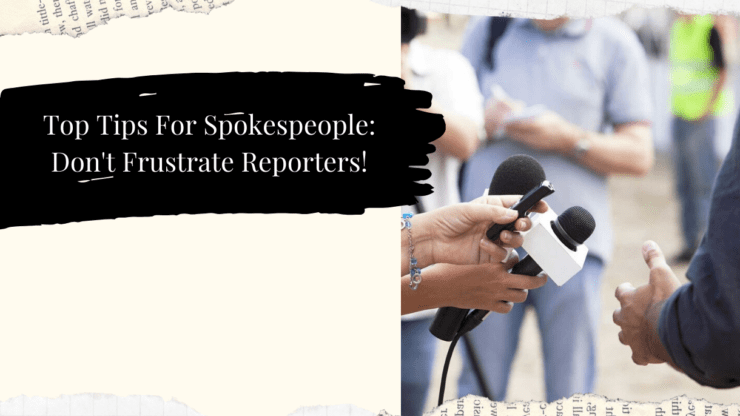Recently, I was told by a reporter that it was nice to talk to a PR professional who shared relevant details and provided succinct information to help him better target the story angle. As a result, the reporter gleaned good information from all of his interviews and was blown away by the enthusiasm of all those he spoke with. This is the ideal outcome when working with reporters, as we, as PR professionals, are the convener between the reporter and company spokesperson.
Across the profession, PR pros often get a bad reputation for not knowing enough about their clients. However, it is sometimes the case that we are in fact knowledgeable, we’ve just done a poor job of appropriately preparing our spokespersons.
To ensure your spokespersons are fully prepped for talking to the media, here are five essential tips:
Be On Time
Reporters are busier than ever. Once a time for the interview has been scheduled, make sure your spokesperson is on time.
Refrain from Requesting to Review a Copy of the Article
One of the rights of a reporter is to create his or her own story based on the facts and interviews they conduct. We have to trust that they will accurately communicate the story and information the spokesperson has shared. When an article comes out and there is something factually untrue, this is the only time that it’s okay for a PR firm to ask for a correction.
Attitude is Everything
It’s not just what they say, but how the spokesperson speaks to a reporter also matters. Sounding condescending or uninterested can negatively effect the remainder of the interview or ruin future interview opportunities. There should be a good combination of sharing factual information while also explaining industry jargon or nuance, if appropriate.
Answer the Question or Don’t
When a reporter asks a question, your spokesperson should answer it directly, or if they can’t, say why not. Speaking in soundbites takes practice, so make sure that you’ve media trained your spokesperson enough so that they’re comfortable answering questions succinctly and accurately. Long winded answers that don’t actually answer the question benefit no one in this situation.
Remember to Provide Follow-up Information
If your spokesperson mentions something in the interview that is relevant for a follow-up, make sure it happens. This also provides another touch point opportunity between you and the reporter.
The next time you or your clients have an interview with the media, make sure to keep these tips in mind to improve your relationship with the reporter and potentially positively impact the story.
Posted In Media Relations, Public Relations

